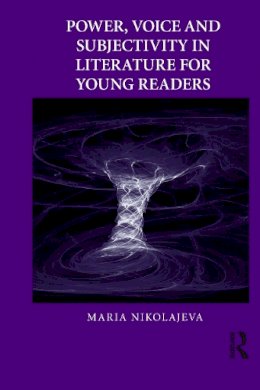
Power, Voice and Subjectivity in Literature for Young Readers
Maria Nikolajeva
This book considers one of the most controversial aspects of children’s and young adult literature: its use as an instrument of power. Children in contemporary Western society are oppressed and powerless, yet they are allowed, in fiction written by adults for the enlightenment and enjoyment of children, to become strong, brave, rich, powerful, and independent -- on certain conditions and for a limited time. Though the best children’s literature offers readers the potential to challenge the authority of adults, many authors use artistic means such as the narrative voice and the subject position to manipulate the child reader. Looking at key works from the eighteenth century to the present, Nikolajeva explores topics such as genre, gender, crossvocalization, species, and picturebook images. Contemporary power theories including social and cultural studies, carnival theory, feminism, postcolonial and queer studies, and narratology are also considered, in order to demonstrate how a balance is maintained between the two opposite inherent goals of children’s literature: to empower and to educate the child.
Product Details
About Maria Nikolajeva
Reviews for Power, Voice and Subjectivity in Literature for Young Readers
Choice "Essential reading for anyone who is or would be a scholar of children's literature."
Children's Literature Association Quarterly "This is a significant, provocative study of children's textual 'oppression.'" Recommended."
Choice 'While Nikolajeva's study is rooted in what might be perceived as familiar territory, it also offers fresh insights and additional, valuable tools with which to explore. As such, it is a laudable addition to the study of literature for young readers.' - Journal of Children's Literature Studies
